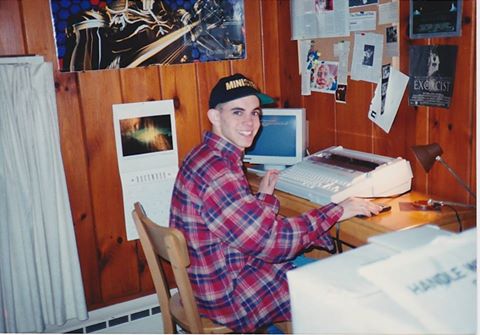This week’s interview with one of the authors of The Irregulars is with American author, Alex Benitez. He took some time out of writing his epic vampire saga to talk about his Irregulars character, Kevin Parker- the teenager who can move faster than the eye can see.
You can watch Alex’s interview with StarkLight Press’ Tony Stark here:
Thanks again to Alex Benitez for taking the time to talk to us- and for his awesome T-shirt!




 with Virginia Carraway Stark and StarkLight Press
with Virginia Carraway Stark and StarkLight Press












